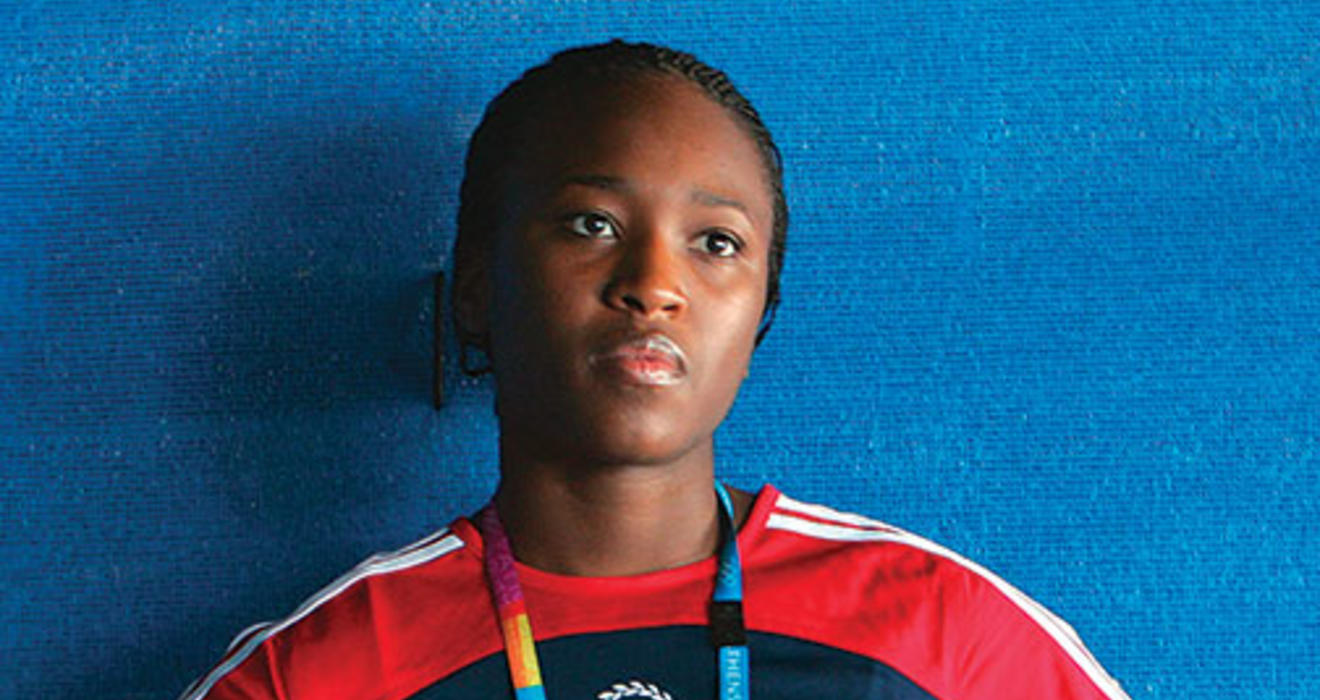
Even when Kamara James ’08 was a young girl, her determination and curiosity made her stand out from the crowd.
“Peter, I got a girl for you. Smart as hell,” a primary-school teacher told Peter Westbrook, a five-time fencing Olympian whose foundation mentors underprivileged children through fencing. Westbrook immediately enrolled the 9-year-old James, who recently had moved with her family to Queens, N.Y., from Jamaica.
When coaches put an epee into her hands, “we could tell instantly that she was a prodigy,” says fellow Westbrook fencer Keeth Smart, who won a silver medal at the 2008 Olympics. Raised in a single-parent family in a tough neighborhood in Queens, the grade-school student rode the subway to fencing classes by herself. “Nothing could discourage her from practicing,” Smart says.
Once stoked, the fire inside would bring James to regional and national fencing teams and to a full scholarship at the Dwight School. Her brilliance on the mats and in the classroom would take her to Princeton. And it finally propelled her to Athens in 2004, as an Olympic fencer — the only woman to represent the United States in epee that year.
Fencing champion Soren Thompson ’05 first met James when they were teenagers. Impressed by her work ethic and her “very sharp wit,” he encouraged her to attend Princeton. Thompson was amazed when the “quiet, driven kid” ended up on stage at Terrace Club, singing and dancing with the band. “She was very positive, very upbeat, and very fun.”
Relatively young and inexperienced, James had been considered unlikely to make the U.S. Olympic team. She took a year off from Princeton, practicing more than 60 hours a week. To pay her expenses, she wrote a business plan. She then contacted and charmed anyone who had even casually offered to sponsor her, raising the $50,000 she needed.
“It was amazing that she could qualify for the Olympic Games with all the complications in her life,” says Princeton fencing coach Zoltan Dudas.
Back at Princeton after the Olympics, James began to exhibit signs of mental illness and, according to news reports, was diagnosed with schizophrenia. She spent three months in a mental hospital but returned to Princeton to complete her thesis, “Mark: A Jewish Gospel for a Jewish Audience,” and graduate.
“It was a major accomplishment that she concluded the senior thesis as she did,” says her adviser, religion professor Simeon Chavel, now at the University of Chicago. In the cover letter to her application to Harvard Divinity School, she talked about running a race as part of her Olympic training. “It was about being able to dig deep when she was behind, to propel herself forward to win the race,” Chavel says.
According to friends, James battled her illness as she tried finance and acting, and also taught fencing. About four years ago she moved to Modesto, Calif., where friends invited her to try a different, slower lifestyle. In September, police discovered her body in her apartment, the cause of death ruled “undetermined” by the county coroner’s office. She was 29.
“I’m glad she’s not suffering anymore,” says Westbrook, who mentored James for 20 years. “Her peace was gone, her joy was gone.”
Friends say James had deferred admission to Harvard Divinity School and was thinking about enrolling. “It’s not a death sentence, having a mental illness,” says her friend Smart. “Kamara was the type of person that you don’t bet against.”
“She fought like a gladiator,” Smart says. He was speaking of James’ fencing performance, but might just as well have been speaking of her life.
Michael Goldstein ’78 is an award-winning journalist and screenwriter in Los Angeles.






No responses yet